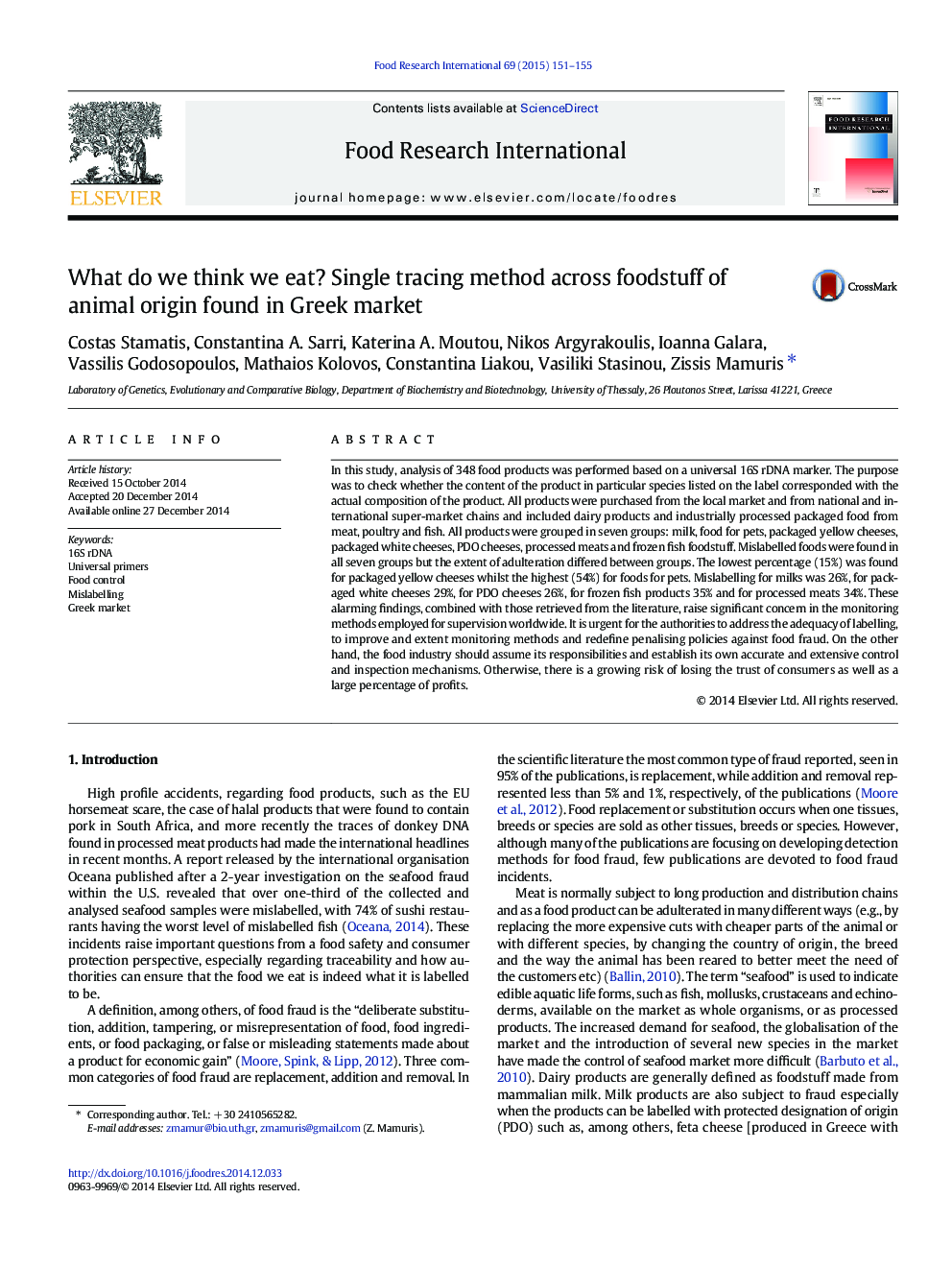| کد مقاله | کد نشریه | سال انتشار | مقاله انگلیسی | نسخه تمام متن |
|---|---|---|---|---|
| 6395569 | 1628477 | 2015 | 5 صفحه PDF | دانلود رایگان |
- Analysis of 348 food products from Greek market was grouped in 7 groups.
- Mislabelled foods were found in all seven groups, but with different percentages.
- These findings raise significant concern in the monitoring methods employed worldwide.
- Authorities and food industry have to improve monitoring and inspection mechanisms.
In this study, analysis of 348 food products was performed based on a universal 16S rDNA marker. The purpose was to check whether the content of the product in particular species listed on the label corresponded with the actual composition of the product. All products were purchased from the local market and from national and international super-market chains and included dairy products and industrially processed packaged food from meat, poultry and fish. All products were grouped in seven groups: milk, food for pets, packaged yellow cheeses, packaged white cheeses, PDO cheeses, processed meats and frozen fish foodstuff. Mislabelled foods were found in all seven groups but the extent of adulteration differed between groups. The lowest percentage (15%) was found for packaged yellow cheeses whilst the highest (54%) for foods for pets. Mislabelling for milks was 26%, for packaged white cheeses 29%, for PDO cheeses 26%, for frozen fish products 35% and for processed meats 34%. These alarming findings, combined with those retrieved from the literature, raise significant concern in the monitoring methods employed for supervision worldwide. It is urgent for the authorities to address the adequacy of labelling, to improve and extent monitoring methods and redefine penalising policies against food fraud. On the other hand, the food industry should assume its responsibilities and establish its own accurate and extensive control and inspection mechanisms. Otherwise, there is a growing risk of losing the trust of consumers as well as a large percentage of profits.
Journal: Food Research International - Volume 69, March 2015, Pages 151-155
